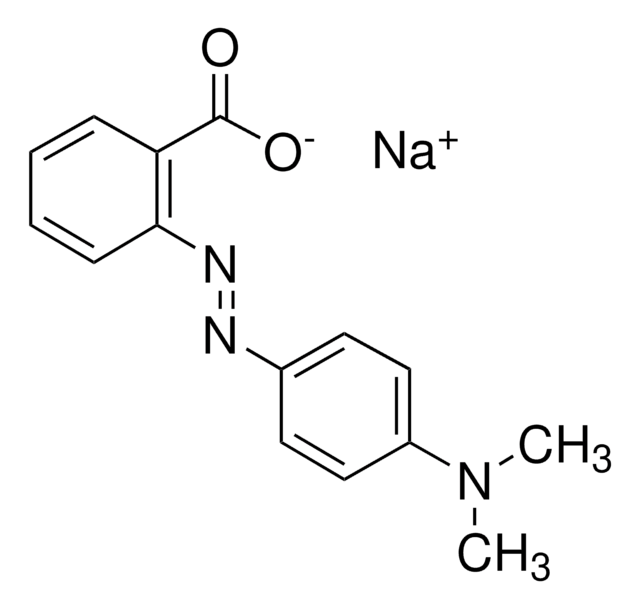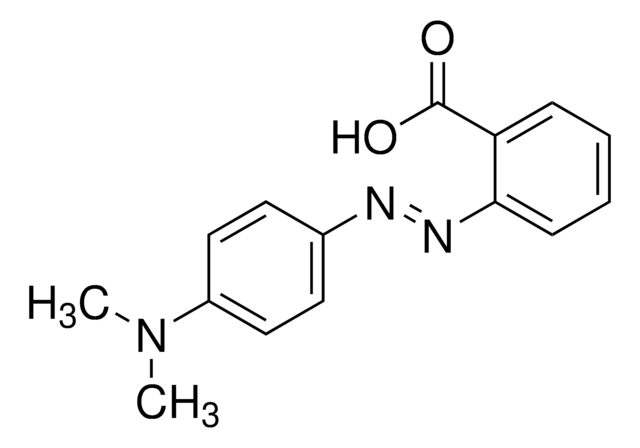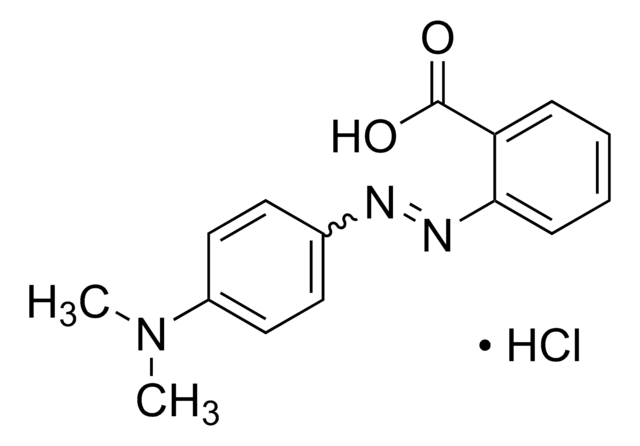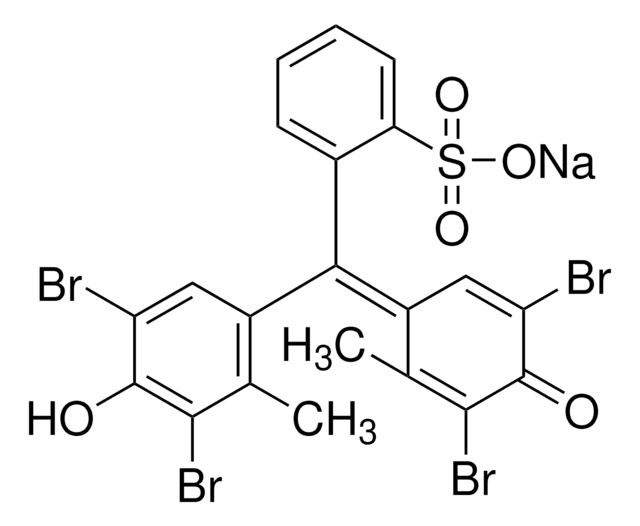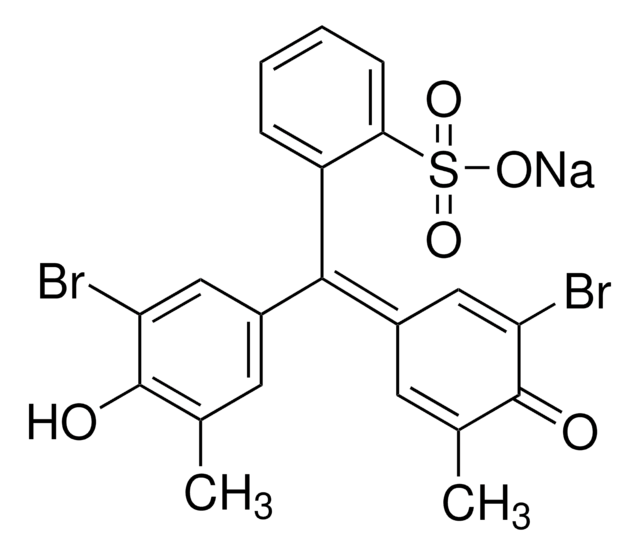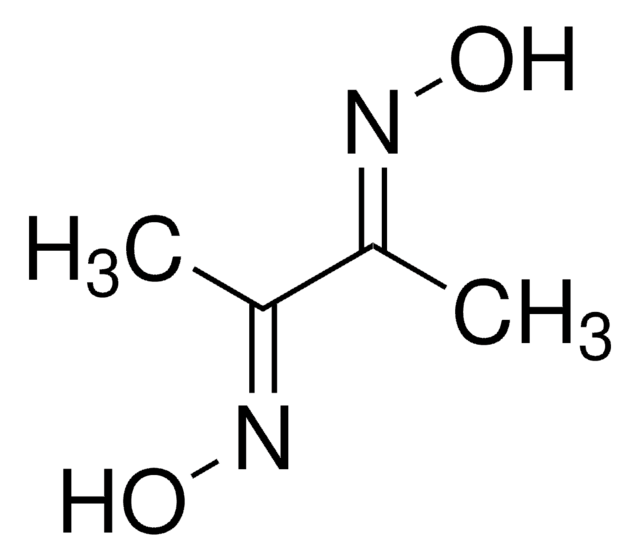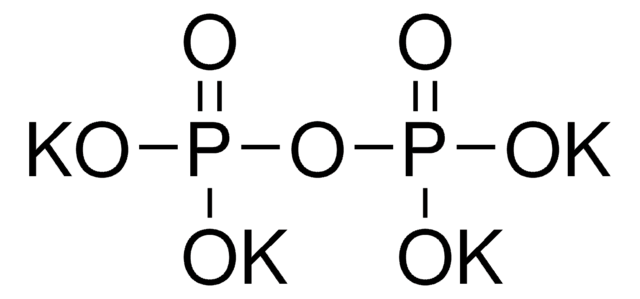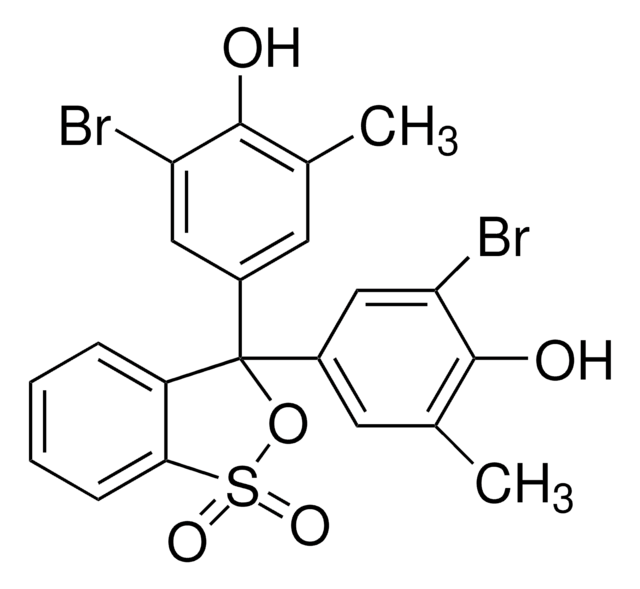M8256
Methyl Red sodium salt
Powder
Synonym(s):
4-Dimethylaminoazobenzene-2′-carboxylic acid sodium salt, Acid Red 2
About This Item
Recommended Products
Product Name
Methyl Red sodium salt, Crystalline
Agency
suitable for SM 2310
suitable for SM 2320
Quality Level
form
powder
technique(s)
titration: suitable
visual transition interval
4.2-6.2, pink to yellow
solubility
soluble, clear, orange
application(s)
diagnostic assay manufacturing
hematology
histology
storage temp.
room temp
SMILES string
[Na+].CN(C)c1ccc(cc1)\N=N\c2ccccc2C([O-])=O
InChI
1S/C15H15N3O2.Na/c1-18(2)12-9-7-11(8-10-12)16-17-14-6-4-3-5-13(14)15(19)20;/h3-10H,1-2H3,(H,19,20);/q;+1/p-1/b17-16+;
InChI key
GNTPCYMJCJNRQB-CMBBICFISA-M
Looking for similar products? Visit Product Comparison Guide
General description
Application
Storage Class Code
11 - Combustible Solids
WGK
WGK 3
Flash Point(F)
Not applicable
Flash Point(C)
Not applicable
Personal Protective Equipment
Choose from one of the most recent versions:
Already Own This Product?
Find documentation for the products that you have recently purchased in the Document Library.
Customers Also Viewed
Our team of scientists has experience in all areas of research including Life Science, Material Science, Chemical Synthesis, Chromatography, Analytical and many others.
Contact Technical Service
